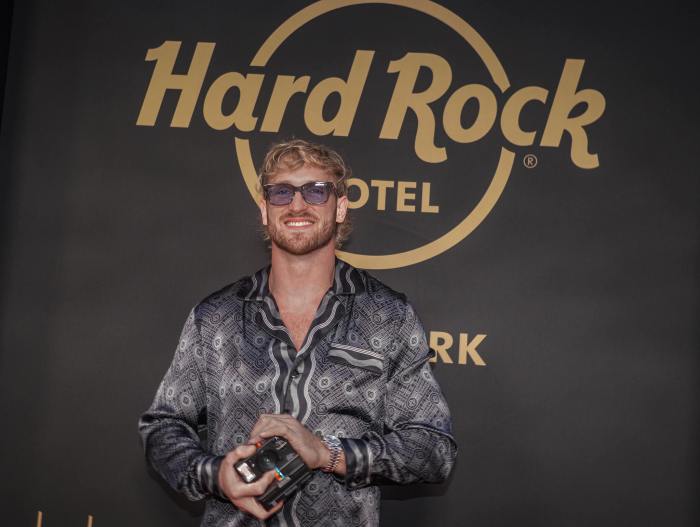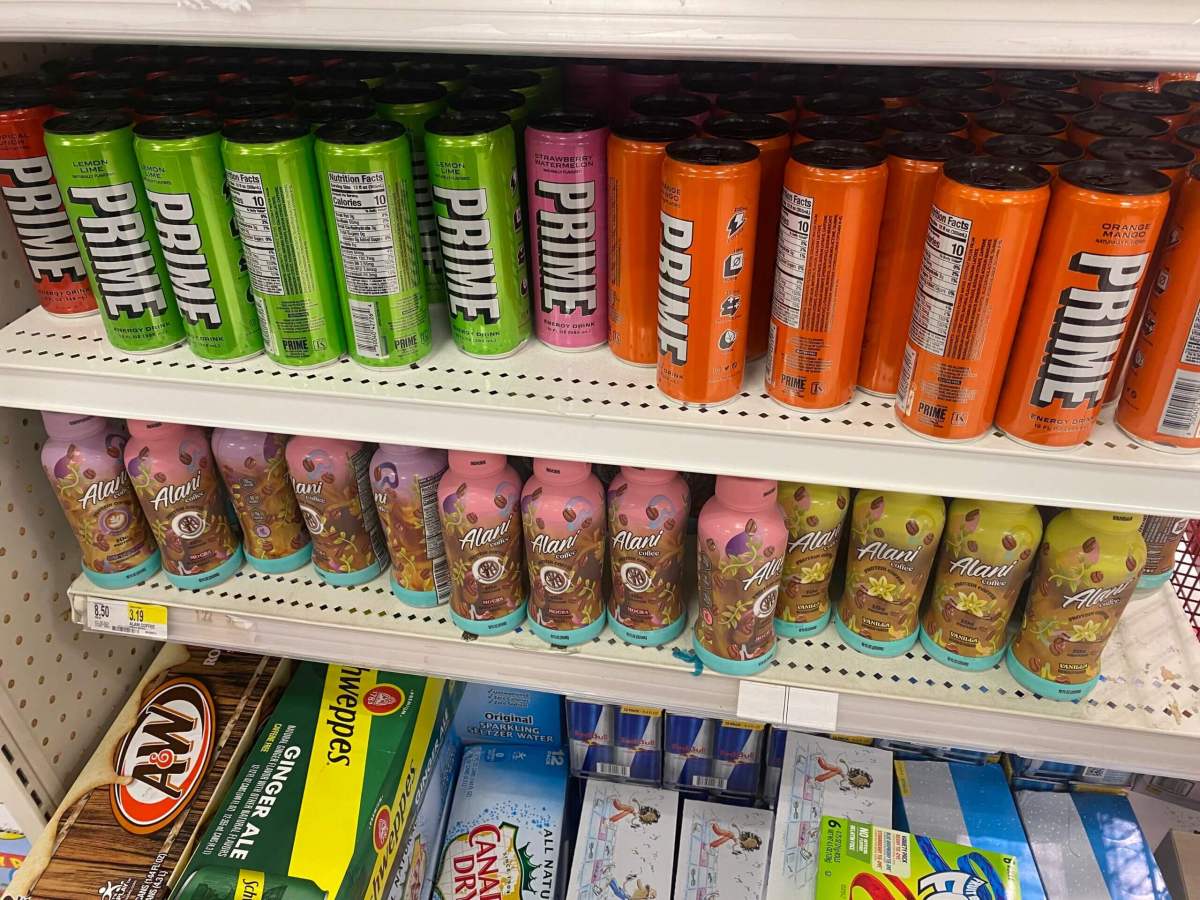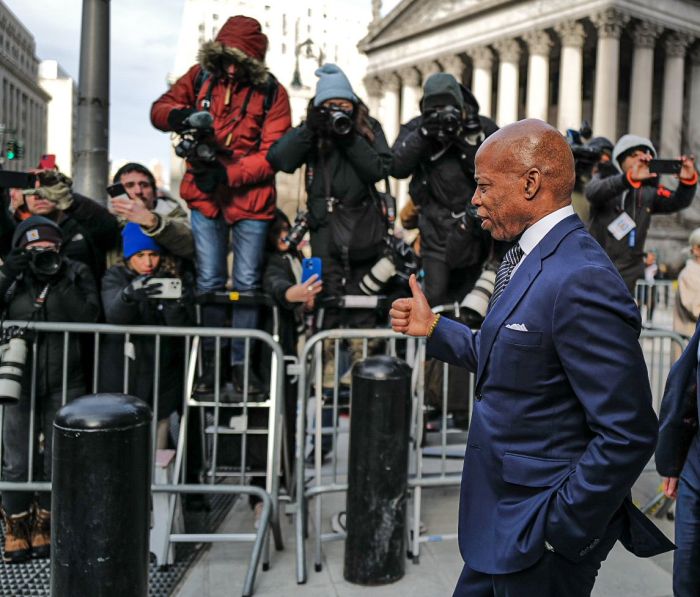Senate Majority Leader Chuck Schumer is calling on regulators to investigate an energy drink marketed by YouTube influencer and professional wrestler Logan Paul, over its ultra-high caffeine content and marketing towards youths.
Prime was launched in the UK last year and is promoted by Paul and British YouTuber KSI, casting their partnership as “rivals coming together as brothers and business partners to fill the void where great taste meets function.”
The drink comes in six flavors, including blue raspberry and strawberry watermelon, and can be found in stores throughout the five boroughs and beyond. It is vigorously marketed by influencers on TikTok and YouTube and has become a popular status symbol among Gen Z.
But like many other energy drinks popping up on the market, Prime contains a feverishly-high amount of caffeine that is worrying parents and lawmakers.
Prime boasts a massive 200 milligrams of caffeine in each 12-ounce can, nearly the same as six cans of Coca-Cola. A 12-ounce can of Prime also contains 2.5 times the caffeine content of a standard 8.4-ounce can of Red Bull, once considered the standard-bearer of high-caffeine drinks.
“One of the summer’s hottest status symbols for kids is not an outfit, or a toy — it’s a beverage — but buyer and parents beware because it’s a serious health concern for the kids it so feverishly targets,” Schumer said in a statement. “The problem here is that this product has so much caffeine in it that it puts Red Bull to shame, but unlike Red Bull, this product has one true target market: children under the age of 18, and that is why I am sounding the alarm and asking the FDA to investigate PRIME.”
When purchasing Prime online, where a 12-pack goes for $29.99, the company notes that the drink is only recommended for those 18 and older. But the social media-centered marketing strategy has all but ensured that the drink would become a sensation among children and teens.
Prime also sells a separate sports drink called Prime Hydration, which launched before the energy drink and does not contain caffeine. But it is marketed in largely the same way, with the main difference being its sold in a bottle instead of a can. Schumer argues this sows confusion among parents and enables children to guzzle the caffeinated cans with their parents none-the-wiser.
“This is eye-popping levels of caffeine for a child’s body,” New York’s senior senator noted. “And because the product is billed as a hydration and sports drink in its other near-identical form, kids are likely to ingest cans of this stuff with parents unaware — and that’s a recipe for disaster.”

Reached for comment, reps for Prime said that the caffeine content in its drinks is in compliance with FDA guidelines and is in line with other drinks of its class.
“PRIME Energy, sold in a can, dropped in 2023 and contains a comparable amount of caffeine to other top-selling energy drinks, all falling within the legal limit of the countries it’s sold in,” said the Prime rep. “It complied with all FDA guidelines before hitting the market and states clearly on packaging, as well as in marketing materials, that it is an energy drink and is not made for anyone under the age of 18. “
“As a brand, our top priority is consumer safety,” the rep continued. “So we welcome discussions with the FDA or any other organization regarding suggested industry changes they feel are necessary in order to protect consumers.”
But the American Academy of Child & Adolescent Psychiatry advises that no amount of caffeine is safe for children under 12, and suggests limiting it to 100 milligrams per day for those ages 12-18 — half the levels seen in a single can of Prime. Excess caffeine consumption can lead to insomnia, hyperactivity, and nausea, and in the long term can lead to addiction. That’s especially dangerous for children when combined with the high sugar content seen in many caffeinated drinks.
Schumer sent a letter to the head of the Food and Drug Administration, Dr. Robert Califf, requesting the agency investigate health claims made by Prime, its marketing strategies, labeling of its high-caffeine content, and whether such a high level of caffeine is safe for children.
“I urge your agency to investigate Prime for its overall claims, its marketing and the caffeine content, and to seriously consider Prime’s target market of children as part of any investigation,” Schumer wrote in the letter.
The FDA did not return an inquiry for comment, nor did Logan Paul.
Paul has frequently been at the center of controversy during his career as an influencer. In 2017, he was heavily criticized after posting a video featuring a corpse while in Japan’s infamous Aokigahara Forest, nicknamed the “Suicide Forest” due to its popularity as a site for ending one’s life. Paul was also accused of abandoning his pet pig Pearl, who was later found in a state of crisis by an animal rescue group.
This story was updated on July 10, 2023 with comment from Prime.
Read more: Belmont Park Race Predictions: Cody’s Wish in Spotlight





































